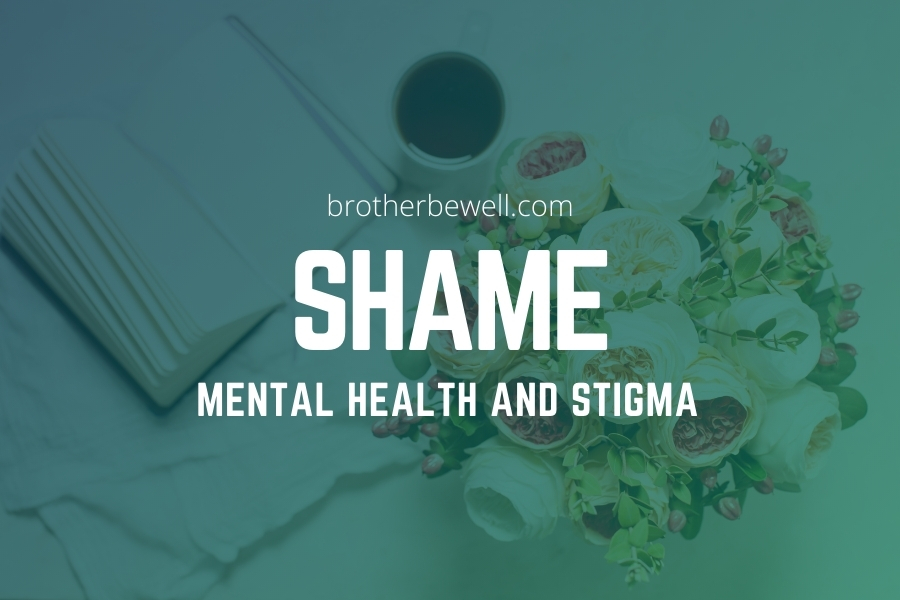It can be tough to feel shameful because you’re struggling with emotional or mental health issues. There’s been a stigma or negative stereotype around mental health disorders for many years. Hiding your medication, wearing the “all is fine” mask when it’s not, lying about why you missed work or an event – these behaviors can increase feelings of shame.
However, over recent years, more people have come forward about their mental health problems. They’re helping raise awareness and break the stigma attached to any emotional or mental health disorder.
Some in the spotlights are coming forward too, sharing about their own diagnosis and how it’s affected their lives. Steve Young, NFL Hall of Famer, penned a book entitled, QB, My Life Behind The Spiral, sharing how he spent much of his life struggling with social anxiety disorder. And then there’s John Nash, who won the Nobel Prize in 1994. Diagnosed as schizophrenic, he didn’t let the label keep him down. In fact, his life was inspiration for the book and film, A Beautiful Mind.
Treating Mental Illness
Today, mental illness is treatable with evidence-based treatments that are really helping. No longer do you have to spiral down and think, “My life is over” if you’re diagnosed with something. You don’t have to isolate, avoid others, or feel ashamed. Using the latest types of psychotherapy, medication, and holistic therapies, you can learn to manage or eliminate symptoms and live a happy, fulfilling life.
Mental Illness Statistics
According to 2017 data from the Substance Abuse and Mental Health Services Administration (SAMHSA), about one in five adults are living with a mental illness. However, many of them never seek professional treatment. One reason is the stigma that still surrounds mental illness – thoughts like:
- If I’m diagnosed, people will think I’m crazy.
- There’s no way I’m taking medication. I’m no weakling!
- No one will ever date/marry me.
- My family will think less of me.
- I’ll feel like a failure.
- There’s no way I’m mentally ill. I’ll be fine.
- My partner will ditch me.
- No one will understand.
Others may have learned stigma from their culture or society. For example, not so many years ago, some mental illness disorders were thought to be caused by demon possessions. Hollywood movies haven’t helped either, with many of them portraying people with a mental health disorder as deranged maniacs. Today, misconceptions like these are far less.
Embrace The Truth
The reality is that life can be tough. It can certainly involve pain, trauma, loss, and other factors that can cause emotional and mental health issues. Sure, it may be tough to admit that you’re struggling, as it can be quite scary. But opening up about your problems to family and a professional can also be the catalyst for some really great strides for change toward better mental health.
Allow yourself to embrace your truth. Regardless of what you may be diagnosed with, you’re still a wonderful person with so much to offer.
Do You Have A Mental Health Disorder?
If you think you’re struggling with a mental health disorder, seek professional help for an assessment. You don’t have to keep struggling. Whether it’s clinical depression, an anxiety disorder, PTSD, addiction, bipolar, or something else, there are various treatments that can help limit or manage symptoms.
If you’ve been diagnosed with a mental illness, it’s alright to accept yourself just as you are. Find treatment that works for you and stick with it. If one type isn’t working, try something else. Often, it takes a combination of therapies.
Consider attending a support group, as this can help you feel less alone and better understood. It gives you a chance to discuss how you’re feeling and doing in a safe space with others who can offer helpful support. It also helps dispel shame you may be feeling.
Be open with those closest to you. They may not fully understand the diagnosis and that’s alright. If you’re not sure how to approach such a conversation, speak to a therapist. They can give you tips on how to talk with them in an open, honest way. If you’re not comfortable sharing your diagnosis with someone, that’s alright. You don’t have to.
Let Compassion Lead The Way
Whether it’s you struggling, or someone you know, allow compassion to lead the way into conversations about mental health. Those that judge usually don’t understand the facts around the diagnosis. Educate yourself on your diagnosis and treatment options.
You can also join with others advocating for mental health awareness all around the world. It’s making a difference.



